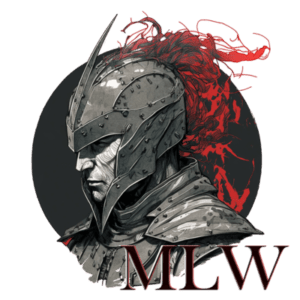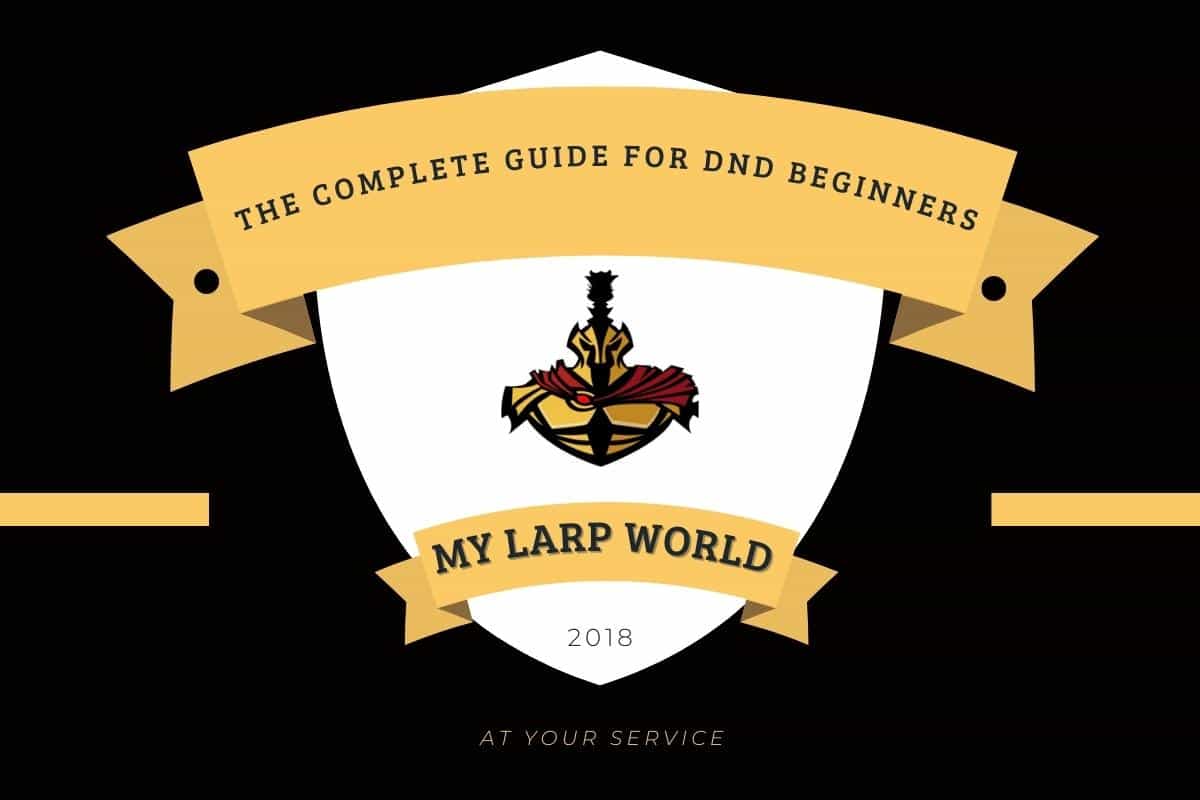Dungeons and Dragons was first released in 1974 and has since then become one of the most influential tabletop RPGs of all time. People from all over the world have either heard of it or played it themselves. The game has undergone various revisions since its first release – and the most recent edition is the fifth, released in 2014.
Getting started with Dungeons and Dragons can be a bit difficult if you don’t have an experienced player or resource to guide you, as there are so many different options. Our ambition is to guide you through the first stages of the game to make this process much easier.
There are things to consider before playing a campaign, during, and after. We’ll cover all of them. Once you’ve finished this article, you’ll feel much more confident and ready to go.
How Does Dungeons and Dragons Work?
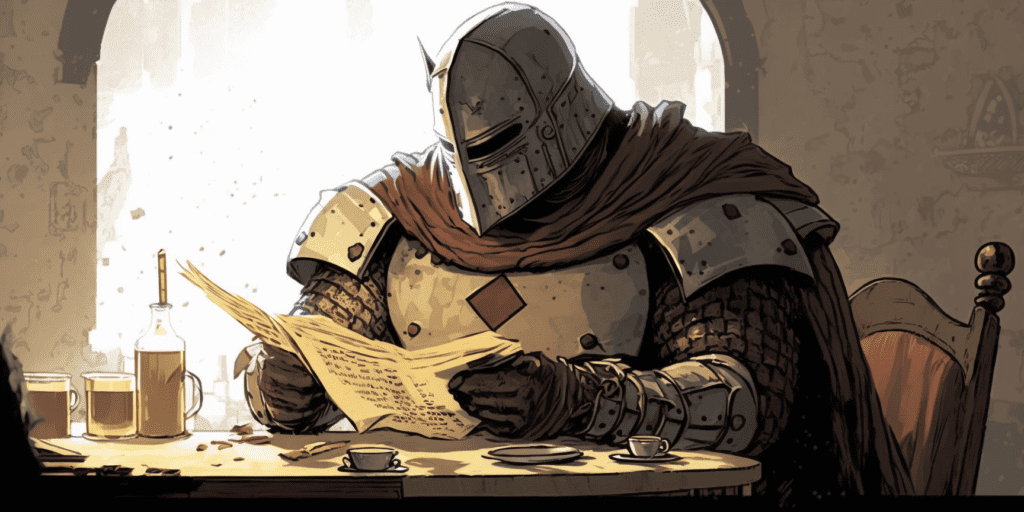
Dungeons and Dragons is a roleplaying game where players create and take on the role of characters as they go on adventures to find treasures, battle foes, complete epic quests, and rescue missions in fictional worlds.
Throughout their adventures, they are guided through the story by the Dungeon Master, who acts as a narrator that presents the story and setting to the players. DMs, or Dungeon Masters, are also tasked with presenting challenges for the characters to overcome during their pilgrimage.
To come out victorious, the party must act together, as different characters have different abilities that can become quite powerful when they supplement each other. These challenges are not only presented in the form of battles.
Sometimes, the characters will be facing a mental challenge in the form of a puzzle, a social challenge caused by an interaction with a non-player character, magical challenges where players might need to triumph over magical obstacles or personal challenges that spring from a character’s background or relationships.
The list goes on and on.
However, the outcome of a character’s actions and decisions are determined by the rules and mechanics of the game, which often includes rolling dice to determine if an action is successful or unsuccessful, the amount of damage an attack will cause, whether or not your character will resist an attack or not, and much more.
These adventures, or campaigns, can be played over a long period of time or be completed during a single session. Traditionally, the game is played by gathering friends at a physical location but with the advancement of technology and social restrictions, more and more players have tried digital alternatives.
This can include playing the game over Discord, which enables players to enjoy the game with players who don’t live nearby.
What Is a Dungeon Master and What Do They Do?
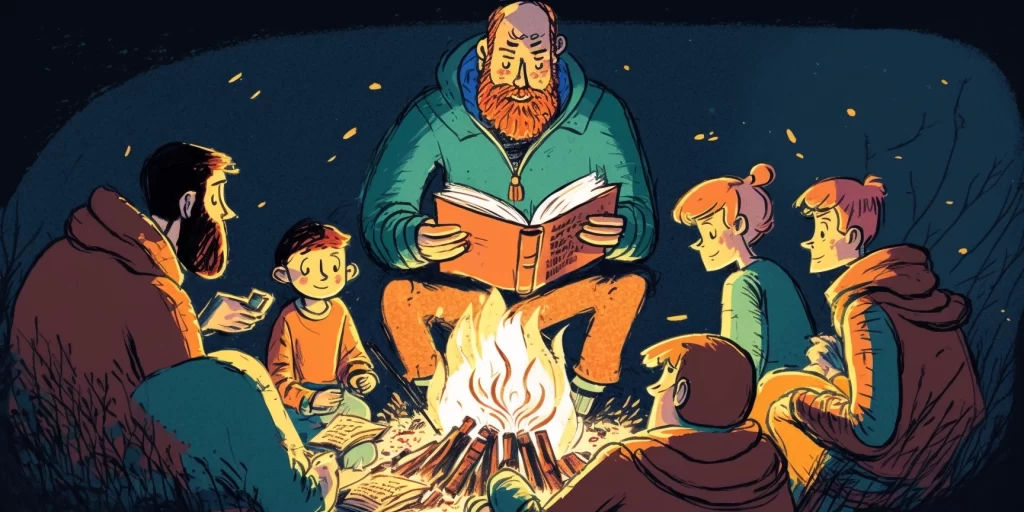
The Dungeon Master is the person managing and running the game. This includes being the storyteller, the one building the world where the story takes place, and the one monitoring the rules. You can think of the DM as the game’s guide and referee at the same time.
He or she should create an immersive experience for the players by creating an interesting, fun, and challenging adventure. This includes creating the world, the non-player characters, the setting, and the plot of the story.
It also includes running the game throughout the entire campaign. Running the game means advancing the story, conveying the rules, and telling the player characters how certain events unfold.
The DM is also responsible for playing all non-player characters in the game, including villains, allies, and other familiar or unfamiliar characters that the party comes in contact with.
As a new player, these things can seem quite daunting. Being responsible for so much while at the same time learning how to play the game. Thankfully, new Dungeon Masters don’t have to do all of the things mentioned above.
Instead, I recommend starting with a pre-written adventure, as this allows the Dungeon Master to focus on running the game. Not having to create an interesting story from scratch can take some of the pressure off, leaving more space for the DM to learn the ropes.
What Do You Need For Your First DnD Game?
While Dungeons and Dragons can be a rather minimalistic game, as the majority of the experience is created by the player’s imagination, there are still some physical items that players need at hand. This includes:
- Character Sheets
- Pencils
- Dice (Set of polyhedral dice – d4, d6, d8, d10, d12, d20)
Oftentimes, when a group introduces the game to a new player, the group can supply the player with these items – but this shouldn’t be taken for granted. Additionally, there are lots of apps for your phone that can be used to substitute character sheets, notes, and dice.
If the entire party is just getting started with Dungeons and Dragons and none of you have any rulebooks, including the Player’s Handbook, the Monster Manual, and then Dungeon Master’s Guide, then you’ll have to purchase or borrow these.
But make sure the books belong to the edition of Dungeons and Dragons you intend to play. More on this later in the article.
They’re available at stores or online. We’ve written an article about places where you can find certain books for free.
In the end, players don’t need that much in order to get started. If you don’t know if you intend to continue playing or don’t want to spend money on the game, then you’ve got a ton of applications that you can use to facilitate pretty much every phase of the game.
Other than that, we recommend you bring something you enjoy drinking and eating. Keep your players hydrated and full to get the most out of the game. You also need a space to play and people to play with, but there are digital solutions for these as well.
What Edition of DnD Should New Players Start With?
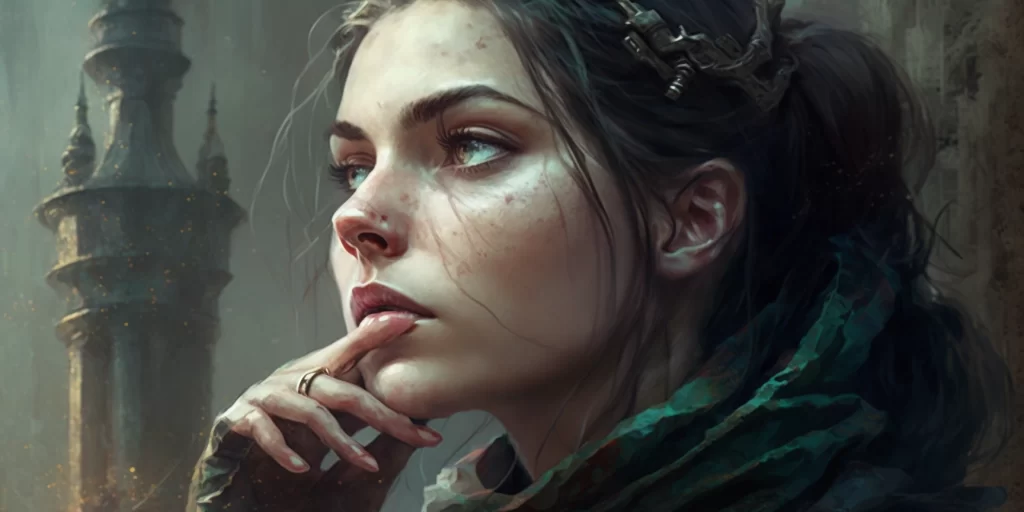
As we mentioned earlier, there are five editions of the game. The rules and mechanics of the game (among a lot of other things) can change quite a lot from one edition to the next.
The fifth edition of the game, also known as 5e, is the most beginner-friendly and simplified version of the game. Therefore, we consider it the perfect place to start for someone who’s looking to get started with Dungeons and Dragons.
Because 5e has less customization and fewer options, it stops new players from being overwhelmed by the sheer amount of information and micro-management that they have to take in and process during their first game.
Instead, by making the game easier to play, beginners may focus on the game and enjoy the experience without knowing the rules of the game fully. This tends to be the best option, as the average player doesn’t want to spend 3-4 hours learning the basic mechanics before the game starts.
Some seasoned players will argue that the fifth edition of the game limits the player from making adjustments or managing details, which I think is true.
This doesn’t have to be a negative thing. Instead, players who’ve learned the ropes by playing the fifth edition can then move on to earlier editions when they feel confident or if they feel limited by the game.
It will also be easier to find groups to play with if you’re playing the most recent version, which is the fifth. Other versions are still popular and played all over the world, so there are options, and in the end, it comes down to personal preference and the will of the group you’re playing with.
If you would like to learn more about the difference between 5e and 3.5, we’ve written an article on that.
What DnD Class Is Easiest For Beginners?
It can be difficult to crown the easiest class in the game, as most classes have different levels of complexity and playstyles. Some classes can be straightforward if you play them in a certain way, but the same class can also require some advanced understanding of mechanics if the playstyle calls for it.
There are, however, some classes that are easier than others. These classes are considered suitable choices for beginners who are just getting into the game.
- Bards are very versatile and can be used as damage dealers, tanks, and healers depending on how the player builds the character.
With that said, I think it’s imperative that the player chooses a class that interests the player, and that he or she might have fun playing rather than looking for the most simplified class available.
How Do I Create My DnD Character?
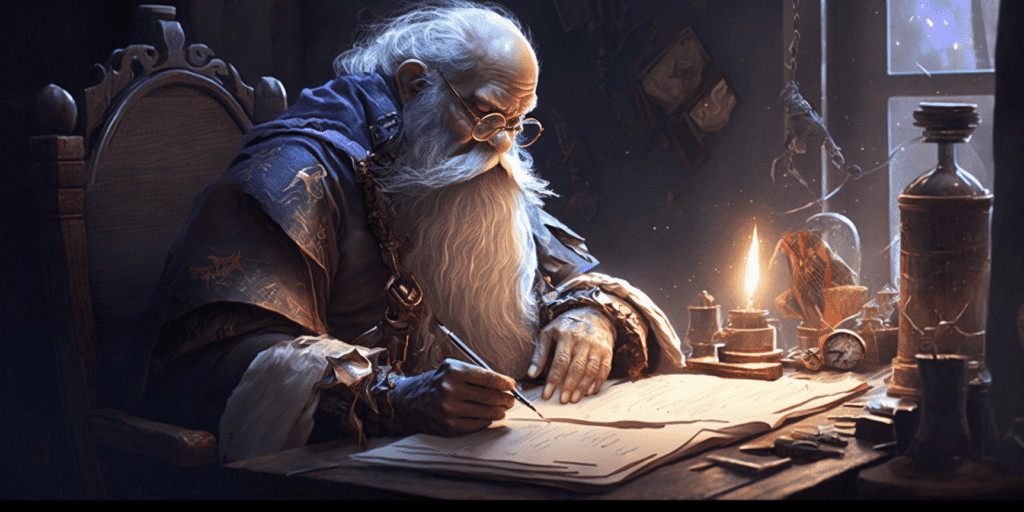
Depending on the campaign you’re playing, you can either create your own character, generate a random character or use pre-made character sheets. Regardless of how you choose to create your character, there are a couple of things to consider.
The first part of creating a character in Dungeons and Dragons includes picking a race, a class, and a background for your character.
Race tells the world what species your character belongs to. Your character’s race also determines his or her physical appearance as well as natural talents. Racial traits also include age, alignment, size, speed, language, and more.
When you’ve decided on a fitting race for your character, you can proceed to pick the character’s class, which can be seen as the character’s profession. This will determine what abilities and skills the character can perform. The player will have to play characters differently depending on the class they pick.
Lastly, you need to pick a background for your character. This tells the world you’re in who your character was before the story begins. Your background also impacts your ability to understand certain languages and perform skills.
When the character has an outer shell, a profession, and a story to tell, it’s time to determine the character’s stats (such as hit points), proficiencies, and ability scores. Then it’s time to record your character’s equipment on your character sheet. The character’s equipment is determined by class and background.
This process can look a bit different depending on the version of the game you’re playing. The most recent version, 5e, makes the process of creating a character more simple than it was in previous versions.
D&D Beyond, which is a well-established website within the DnD community, has a tool called the character builder which gives you a clean interface to create your character.
The character builder also guides the player through the character creation process. If you still have questions, they’ve got a step-by-step guide on the process of character creation.
We’ve written an article that shows you how you can make your character more interesting.
How Much Does It Cost To Start Playing DnD?
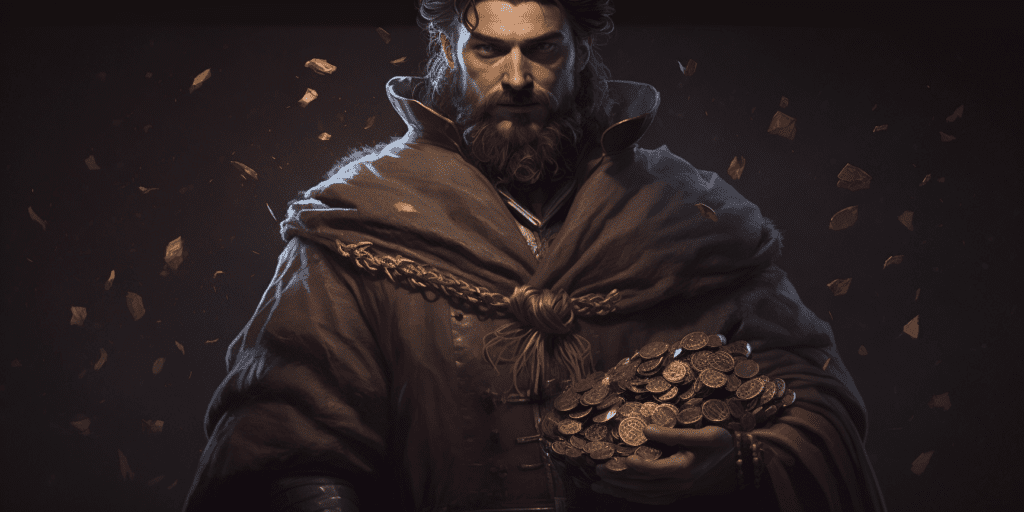
The cost of playing Dungeons and Dragons can be extremely low but also quite high, depending on a bunch of different factors. We’ll discuss the expenses needed to cover the most basic things needed in order for you to play the game.
For some players, it doesn’t cost a single dollar to get started – while others will pay $100 or more to get started. The average beginner doesn’t have to spend more than $20 to $30 to get started. With such a broad range one must ask, what determines the cost?
Rulebooks
If you’re joining a session where the players already have rulebooks and a campaign, then you can cut out one of the largest expenses when it comes to basic DnD items. If not, you’ve got three alternatives:
- Purchase the DnD Starter Kit
- Purchase the DnD Essentials Kit
- Purchase the Player’s Handbook, Monster Manual, and Dungeon Master’s Guide.
Both kits are available on Amazon for less than $20 each. If you ask me, I think the starter kit is the best option for beginners as it goes through the rules in an easier manner which makes it a better fit for beginners who want to get going as soon as possible.
Players can then advance to the Essentials Kit as it is a bit more advanced but fully digestible for someone who has gotten a feel for the flow and mechanics of the game by playing the Starter Kit.
Naturally, the next step would be to purchase the core rulebooks, which can be found for anywhere between $20-50 each. They’re available as physical copies in-store or as PDFs online. Digital copies of the books might come at a lower price than their physical counterparts, but this isn’t always true.
More on the different kits in the next section.
Dice Set
Each player should have a set of polyhedral dice at their disposal throughout the game. With that said, there are a bunch of different dice simulators available for your phone that can act as a substitute for a dice set, and they’re free.
If you want a physical dice set, you can get one for no more than $10.
Related Article: How Many Dice Should You Have In DnD?
Pencils & Paper
The same goes for your accessories, they’re available in physical form but there are digital counterparts that you can use free of charge. You can print out character sheets that you find online or even create your own using PowerPoint, Photoshop, or Canva.
The cost of these items can be reduced to pennies.
To summarize, the cost of playing DnD isn’t that high, unless you purchase all core rulebooks. For a party that doesn’t have access to any rulebooks, the preferable way to go is a starter kit. If you split the starter kit with your party, the cost will come down to a few bucks per person.
What DnD Set Should You Get as a Beginner?
As stated above, the path I recommend for beginners is to get the Starter Kit first. But, why? Well, the Starter Kit includes everything you need to get started. Which includes:
- An essential rules handbook
- An introductory campaign
- Five premade character sheets
- A set of dice
That’s everything you need to get started, in addition to that, everything is delivered to the player with as little complexity as possible to prevent the player from being bogged down by options and information on their first playthrough.
The premade characters are disliked by some and liked by some, but they’re in no way limiting you or restricting you from creating your own character from scratch. The premade character sheets take care of the math for you, the rest is only there to serve as inspiration for your character.
If creating your own character is an important part of the experience for you, you can use the character creation tools available at D&D Beyond.
There is more than one Starter Kit, but the one I’ve found to be the best for onboarding new players is Dragons of Stormwreck Isle. The official Dungeons and Dragons Youtube channel has videos that showcase the Starter Kit and explain it to new players and DMs.
What Age Should You Be To Start Playing DnD?
Dungeons and Dragons can be played by anyone but the game may need to be scaled down for very young players who haven’t developed the skills needed to grasp the game in its entirety.
From what I’ve collected by scouring the internet, the sweet spot when introducing a new player to the full-scaled game seems to be 11-13 years old. The rules can be a bit complicated and players need to be able to think outside the box in certain situations.
This is more of a guideline than anything else. Some people play Dungeons and Dragons with their six-year-olds, but they often stray away from the rulebooks and, instead, focus on the story itself.
So the answer is that the game can be enjoyed by anyone. My grandfather and his friends used to play DnD at their gatherings until they retired from the game at the ripe age of 70.
We’ve covered this in-depth in another article if you would like to read more.
What Should You Not Do as a DnD Player?
So now that you’re getting closer to your first session of Dungeons and Dragons, wouldn’t it be wise to take a look at things that you should avoid doing when playing DnD? In order to have a nice and pleasant experience, players should:
- Avoid being a power gamer: In most cases, making your character an overpowered slaughter machine doesn’t end well. Instead, focus on the roleplaying and storytelling aspects of the game rather than min-maxing everything. Of course, you should focus on improving your character’s abilities and stats, but not at the expense of the roleplaying experience.
- Don’t be afraid to share the spotlight: Hogging all the spotlight and leaving very little space for the rest of the party to develop and express their character doesn’t end well either. Make sure everyone gets their time to shine. This will make the overall experience much better.
- Don’t be a rules lawyer: You should get a grasp of the basic rules of the game, but you shouldn’t question the Dungeon Master’s every decision and try to bend the rules to your advantage. Instead, trust that the DM is doing his or her best to give everyone at the table a fun experience. Raise your questions or dissatisfaction after the game.
- Don’t control others: Don’t tell other players what their characters should do. This is a roleplaying game where every player should have their own experience and will. You can, perhaps, during parts of the game control another player’s character through mind control of sorts, but don’t control the player’s actions.
Can You Play DnD By Yourself?
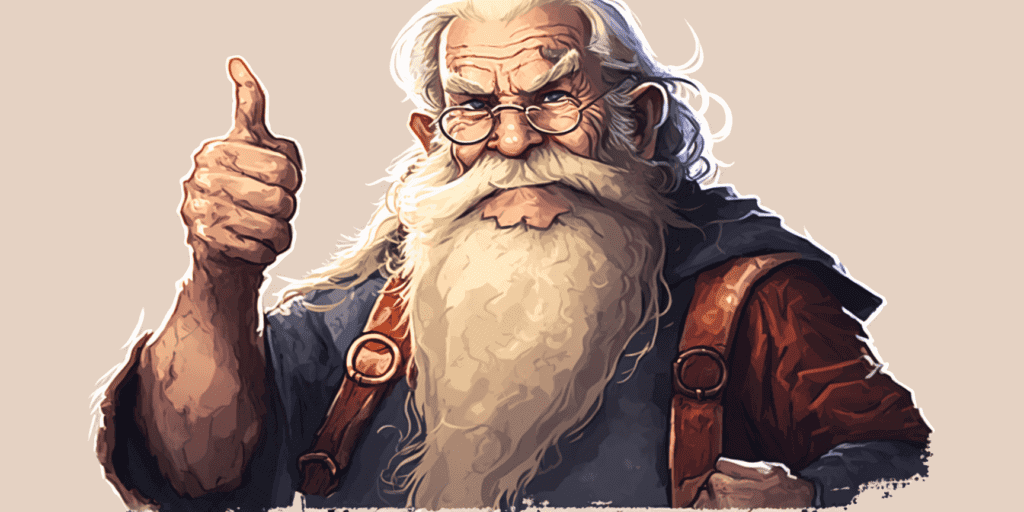
You can absolutely play Dungeons and Dragons by yourself. Sometimes, a player might enjoy playing the game by themselves because they find it easier to learn the ropes when there aren’t others around or because it’s difficult to find a group.
Playing by yourself also gives you more freedom of choice during the campaign. With that said, bouncing ideas with others during the campaign makes for quite an interesting game and if you ask me, the game is best experienced in a group of players.
But if you prefer to have more control over all the characters, the story, and the outcome – then a solo adventure is a good alternative.
There are solo adventures that are suitable for one player and a good option if you want to experience the game in a fun and rewarding way by yourself. Remember, solo players often take on the role of the Dungeon Master and a Player Character at the same time.
You can either choose to play pre-written adventures or create your own solo adventures. Creating your own adventure is almost like writing your own book. You create the world, the characters, their stories, and so forth.
This can become a bit dull if you want the unexpected to happen or if you want the character’s actions to be random. In that case, using a random generator for certain things in the game can give the feeling of things being more random, and not as set in stone.
There are a ton of resources available online for the solo player to facilitate role-playing without a party. Among the resources I would recommend are:
- Tom Scutt’s DM Yourself
- Solo Adventurer’s Guide
- Random Dungeon Generator
- Solo D&D Books
- Random Encounter Apps
Specific adventures or systems that I recommend:
You can find more on the topic here.
How Do You Play DnD Online?
To play Dungeons and Dragons online you should start by finding a platform where the game can be played. These platforms are also called virtual tabletop environments, and a couple of well-known alternatives include:
- D&D Beyond
- Roll20
- Fantasy Grounds
I can recommend all of these.
Then you need to get the communication in order. For this, we’ve used Discord. There are mods that allow you to play music in Discord to set the ambiance during the adventure. There are other mods that allow participants to roll dice in Discord as well.
The share screen function is also great – whether it be because of technical issues or when the Dungeon Master wants to reveal secrets.
In order to have the best experience, I recommend a dual-monitor setup. This way, you can have Discord showing your friends on one screen and the tabletop environment (the map, for instance) on the other screen.
Our Dungeon Master creates a Spotify playlist for each of our adventures. He picks songs that are suitable for each episode or part of the adventure. The playlist is then played through Discord by integrating Spotify into Discord. All members must have Spotify premium in order for this to work though.
However, playing online isn’t a problem and can be done in many ways. Plenty of groups from all over the globe have found impressive ways of doing it during the last two years, and I believe the digital tools used for it will continue to evolve at a rapid pace.
How Long Does a Dungeon and Dragons Campaign Last?
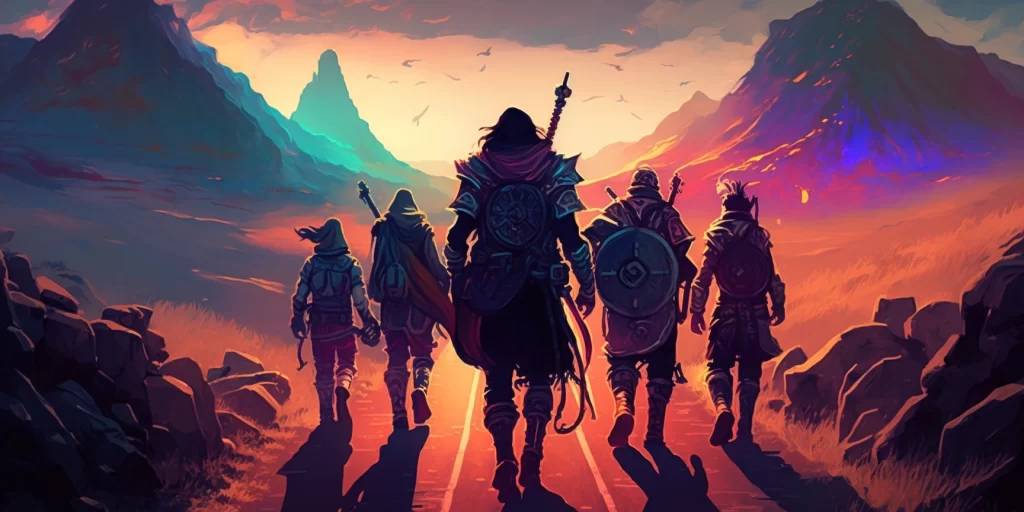
There are one-shot adventures that can be completed during a single session, which could last for a few hours but no more than that. Then, on the other end of the spectrum, you’ve got campaigns that have lasted for years.
The longest-lasting DnD campaign I’ve heard of is that of Robert Wardhaugh, which started in 1982 and continues to run to this day. But as you might’ve expected, that’s an extreme example and far from how long the majority of games go on.
The average session lasts between 3-5 hours, I would say. Sometimes, we’ve played 10-hour sessions, which go by faster than one would think. Role-playing can be a time-consuming endeavor, and immersive at that.
During a 3-5 hour session, the party will sometimes make very small advancements in the story, as you might find yourself focusing on details or sidequests. Other times, the party will make huge advancements and solve big pieces of the puzzle in a single session.
You should expect a regular campaign to last for a couple of sessions, but this can change drastically depending on the preparations your DM has made, the pace of the party, the understanding of the game, and so forth.
Instead of focusing on time, enjoy the game session by session and see where it takes you. The time it takes for your party to finish a campaign is determined by your party, therefore, it’s quite hard to tell. This is something you’ll figure out as you play together.
The more you learn, the faster you’ll be able to handle some situations in-game. However, you will also see more options and take more space, which will prolong the game even further, so they pretty much cancel each other out.
How Many Players Should You Be When Playing DnD?
Dungeons and Dragons can be played with larger groups and by single players but there is a sweet spot, where everyone gets enough space and time to develop and experience their character, and where there are enough characters to create a compelling story with interesting characters and combat sequences.
The sweet spot seems to be somewhere around 4-6 players, and a Dungeon Master. You can go past 6 players too, but sometimes it ends in total chaos as there’s too much going on at the same time.
Beginners can sometimes gravitate towards smaller groups at first, which is totally understandable if you’re new to the game or enjoy smaller groups. That’s totally fine. You’ll still have a good experience, and each character will have to take up more space to fill the extra space.
